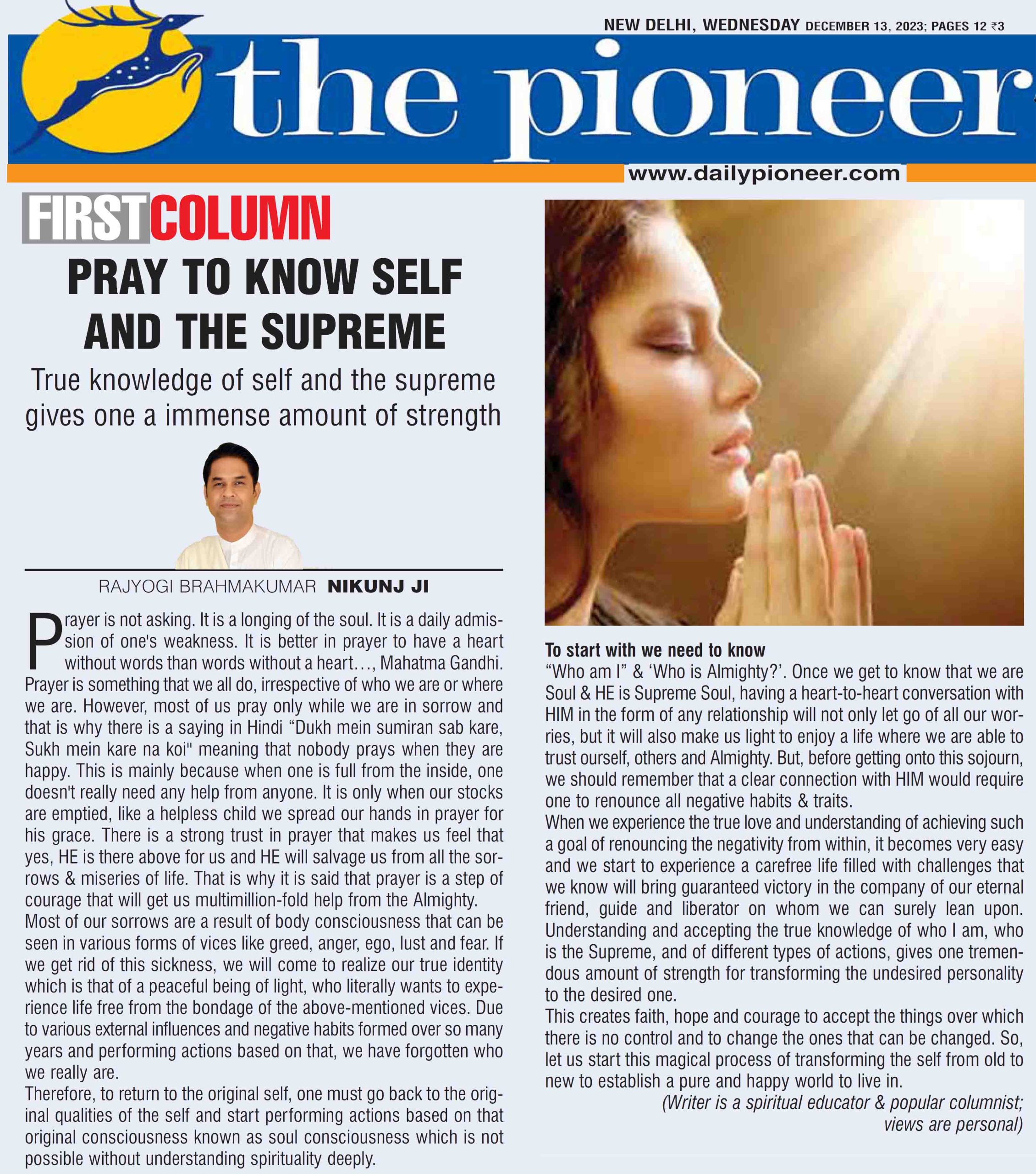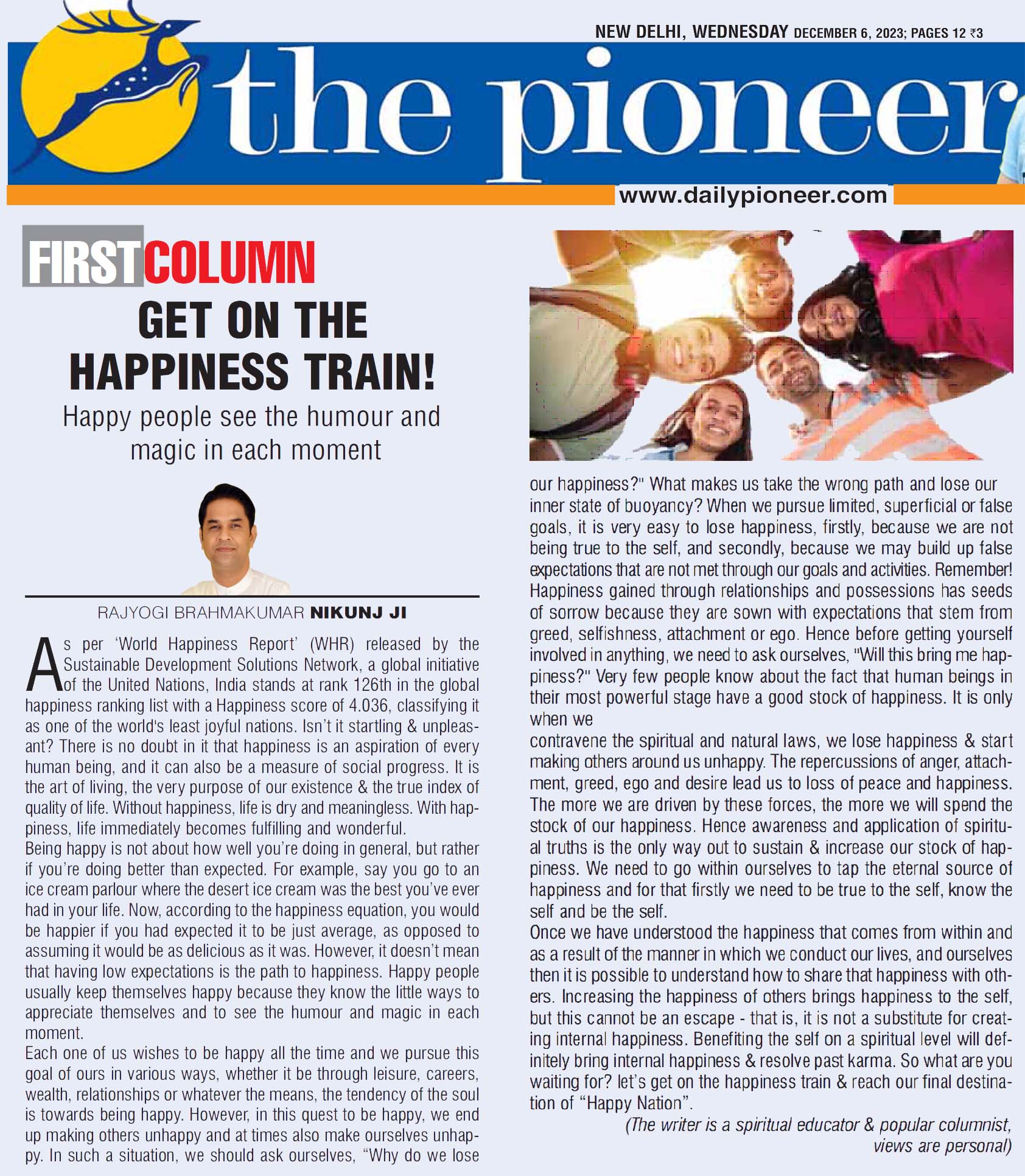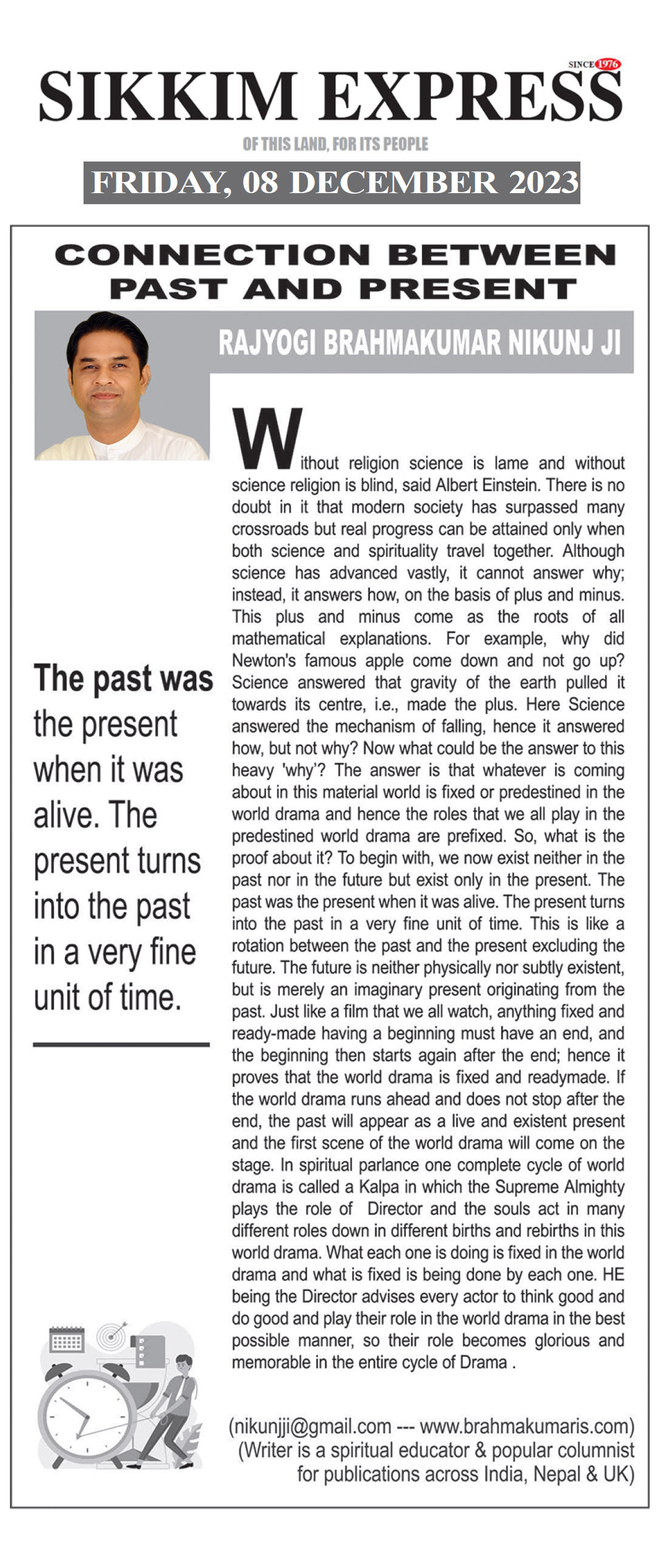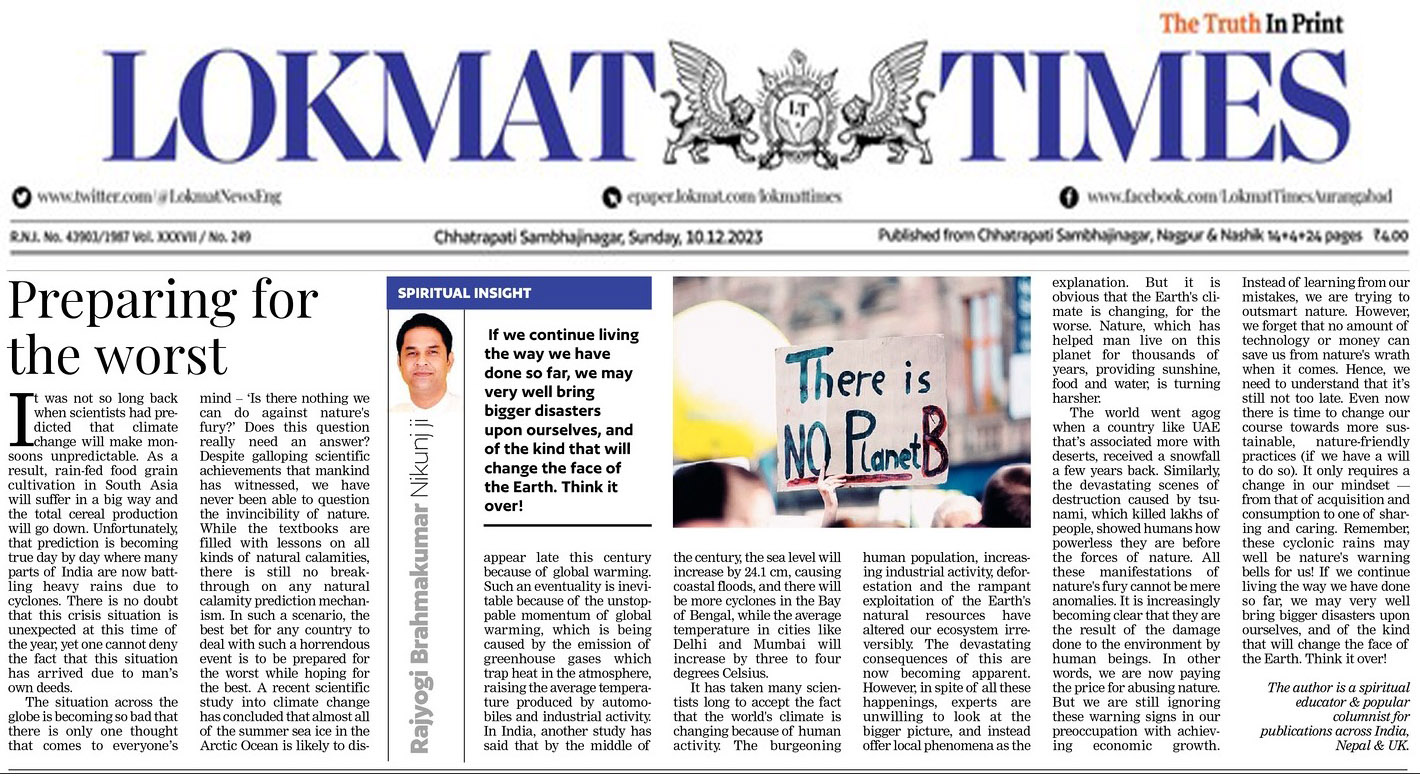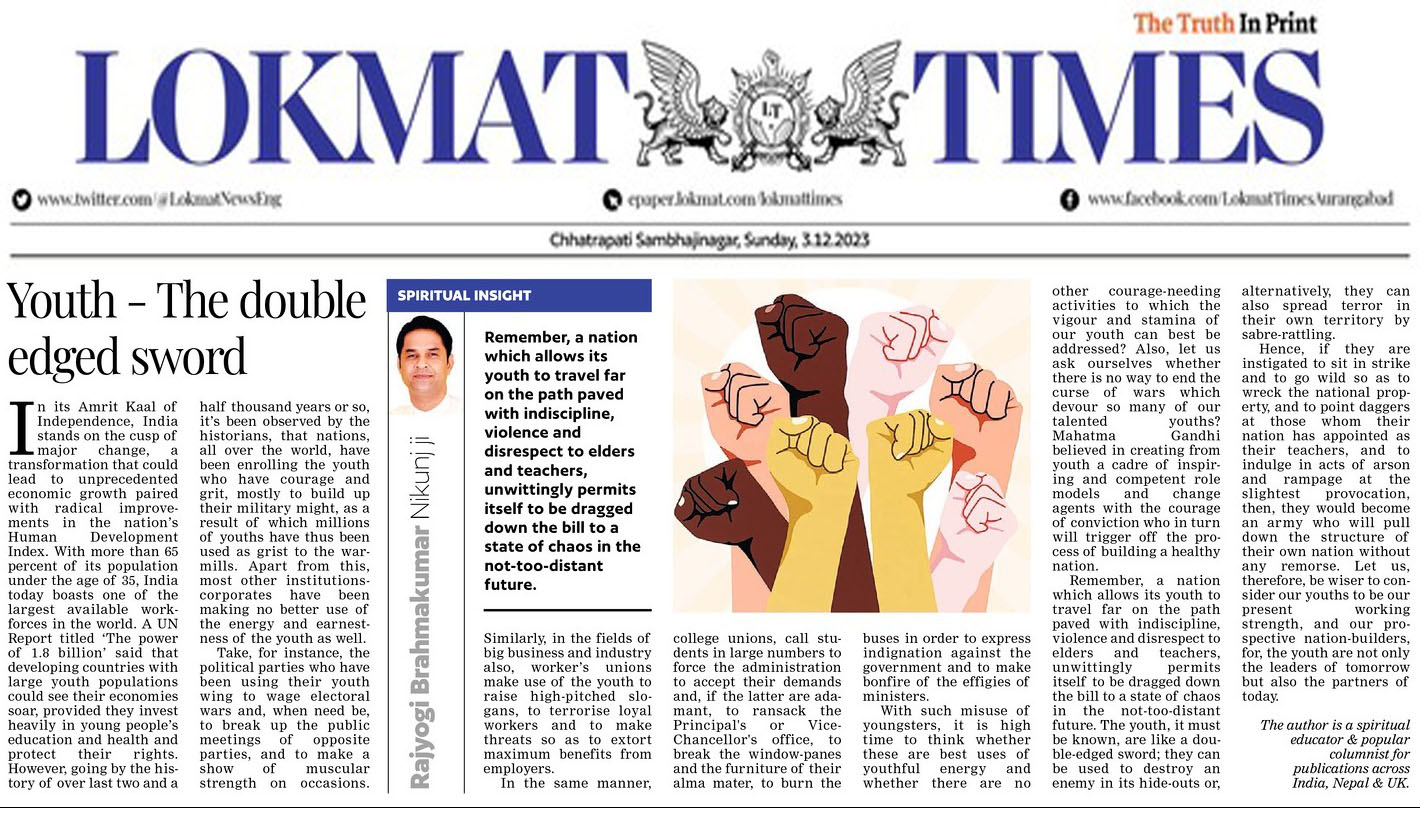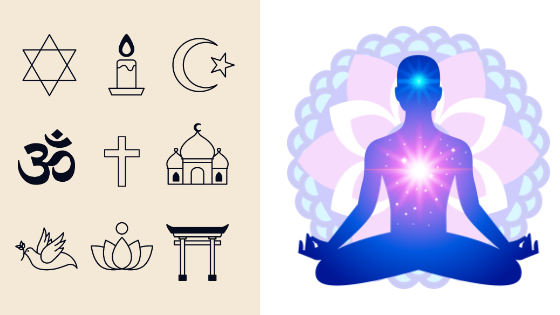
Over the last several decades, the topic of spirituality has come to the forefront of public and professional consciousness.
With the dawn of a new century, spirituality has received increased coverage in the media and more discussion in the workplace, in politics, and in education. To many, spirituality represents a necessary essence of life that energizes both thoughts and actions.
To others, spirituality is a belief in a power operating in the universe greater than oneself.
Still others define it as a sense of interconnectedness with all living creatures, and an awareness of the purpose and meaning of life. However the lack of a universally accepted theory or definition of spirituality has created a lot of confusion as well as mis-understanding in society.
Many people confuse spirituality with religion and so bring pre–existing beliefs about the impact of religion to discussions about spirituality. Though all religions emphasise spirituality as being an important part of faith, what really needs to be answered is whether is it possible to be ‘spiritual’ without necessarily being a part of an organised religious community ? Recognising the difference between spirituality and religion can be a great way to begin to understand what spirituality actually means.
Those people who profess their faith in Almighty and higher beings, in living life virtuously or in following the rituals pertaining to their faith are known as religious-minded.
However, there is a difference between being religious and being spiritual. Even though books and information on spirituality have flooded the world, there is still a lot of vagueness and contradiction about knowledge of the soul, its original nature, abode and role in world drama.
The first step towards being spiritual is to be soul conscious and be free from all limitations and bondages of the physical world.
A spiritual being is aware of his/her real identity-of being a soul and a child of the Supreme Soul-and is also aware of one’s true nature of being peaceful, pure, blissful and loveful. When we play our worldly roles with this awareness, we live a truly spiritual life.
We also begin to see everyone as souls and instead of creating karmic bondages in relationships we begin to empower each other and remain detached and loving.
Self realisation is the goal of many spiritual schools of thought but most people go beyond satiating their curiosity to learn something new, and once they learn it or experience it, their excitement fades and they start searching for other sources of intellectual stimulation.
A spiritual person always remains contented with the self and devotes his time not in material pursuits but tends to remain in the company of the divine thereby experiencing true love, peace and happiness which are more lasting than material attainments. Such a person will see everyone as souls; be loveful to every person in this world regardless of one’s religion,country, gender and other physical traits.
When we would understand the above definition of a real spiritual being, we would be spiritually awakened and enlightened & get directly connected to the Supreme Being who would lead us to the path of self transformation which would further lead to world transformation.
So let’s embark on this journey of becoming a ‘Spiritual Being’ through self realisation & introspection.


